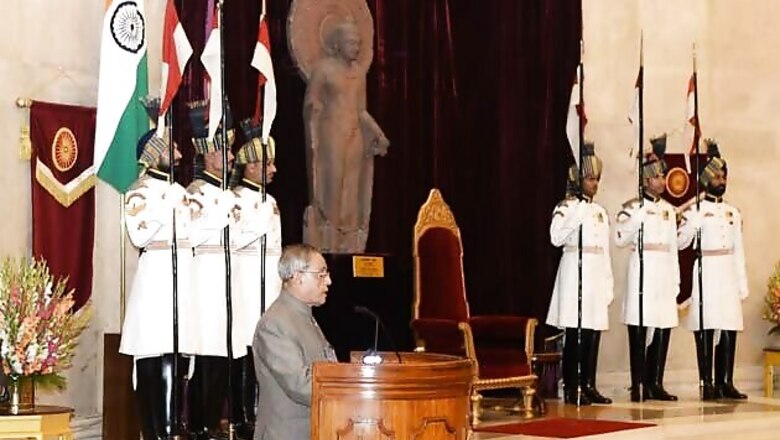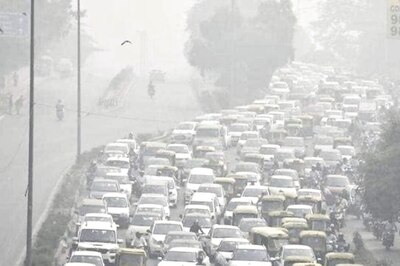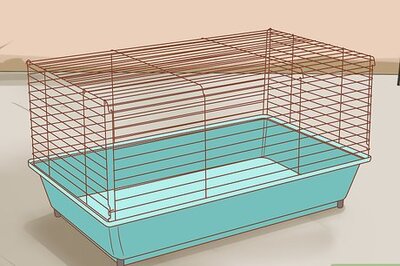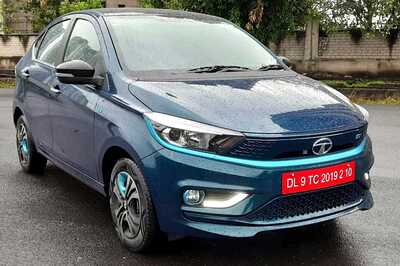
views
New Delhi: The defence forces should reduce dependence on imported equipment, President Pranab Mukherjee on Wednesday said, noting that they should be equipped with modern weapons to counter complex security threats, including the scourge of international terrorism.
Citing recent increase in FDI ceiling in defence from 26 to 49 per cent, he stressed the need for a well-calibrated strategy with primary focus on the development of indigenous military industry.
Addressing members of 54th NDC course and staff of National Defence College, he said the nation today face several challenges. "They include the scourge of international terrorism. The problem has been compounded by non-state actors who are often sponsored, financed and armed by states. Not only our armed forces, but those of other peace-loving nations too should brace themselves to meet this challenge.
"In order to counter the complex security threats, our defence forces should be equipped with modern and sophisticated weapons," Mukherjee said. He, however, expressed concerns over high dependency of forces on imported wares.
"Unfortunately, our forces are heavily dependent on imported wares. Today the dependency is around 70 per cent in regard to our capital requirement. But this high level of dependency is fraught with danger for our armed forces. "The technology denial regimes, and the availability of critical spares and support at crucial moments can pose serious challenges to our security forces. This level of dependency has to reduce substantially," he said.
The President, who is the supreme commander of the armed forces, also called for a synergy between various organs of the state. "In a democratic system like ours, various organs of the state must complement each other in the goal espoused by the political leadership. Senior civil service officers must be conversant with the capabilities, challenges and issues concerning the national security.
"Similarly, the officers of the armed forces must get a perspective of the constitutional frame-work under which the political executive and the civil services function," he said.
Mukherjee said a well-calibrated strategy with primary focus on the development of indigenous military industrial complex should be implemented sooner than later. "In such instances, the Cabinet Committee on Security would take decision on a case-to-case basis," he said.
The government, he said, has recently enhanced the FDI ceiling in defence from 26 to 49 per cent. "This ceiling would not be an impediment where state-of-the-art technology is involved. This measure is expected to strengthen the indigenous defence industry," he said.
The President said that India is constantly pursuing the development of friendly relations with countries in all spheres and security is an important aspect of international cooperation. It, therefore, transcends the traditional view that the armed forces of a nation are only concerned with the territorial integrity of a nation and where conflict is involved, Mukherjee said, underlining that their role today encompasses economic, energy, food, health, environment, amongst many others.
He said national security demands a multi-dimensional, and a systematic and holistic approach. "It calls for intense research across a wide spectrum of subjects. At the same time, the various subjects should not be studied in isolation. The emphasis should be on analysis maintaining cross linkages," the President said.
The role of the armed forces has expanded with the revolution in military affairs and globalisation, he said. "It is clear that future conflicts in the complex defence and security ecosystem will require a more integrated multi-state and multi-agency approach. Preparing military leaders, police officers and civil servants to deal with the security environment of the future will necessarily have to be addressed in a holistic and comprehensive manner," Mukherjee said.




















Comments
0 comment